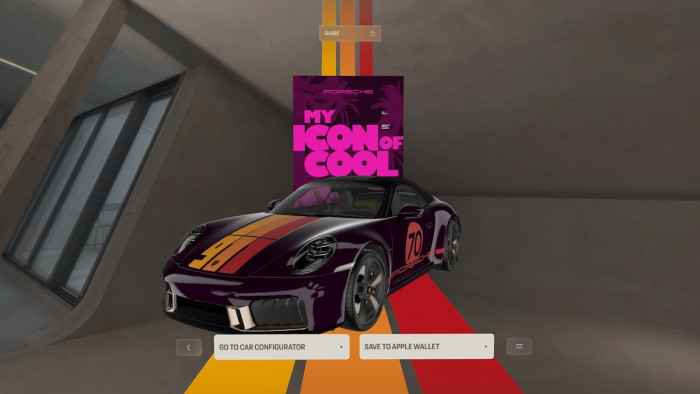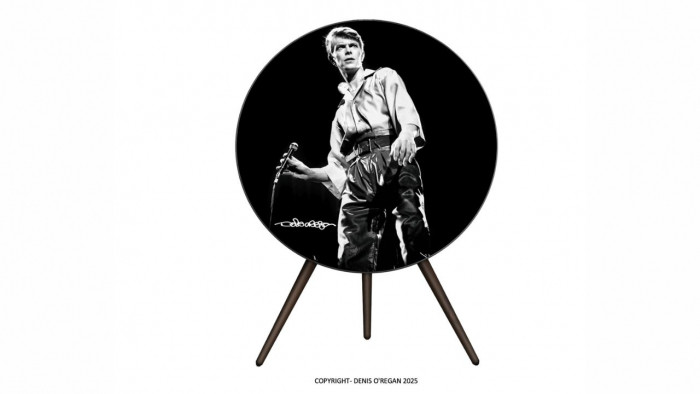One billion people will visit Facebook today.
They'll post images, chat about stuff, "Like" hilarious cat videos and generally faff about on the most populous social media site in the world - but that's not enough.
"We're trying to connect everyone on the planet," Facebook's vice president of engineering Jay Parikh tells ShortList.com.
He's on a mission, to explain how and why an internet service Mark Zuckerberg conceived in his university dorm is now trying to connect some four million people currently unable to gain access to the internet.
This is Facebook's 10 year plan for total internet connectivity - and world domination. Of sorts.

Virtual Reality
To be specific, Oculus Rift - the much hyped VR headset that arrives early next year.
Facebook splashed out some $2 billion for VR startup back in March 2014, causing many to raise an inquisitive brow. After all, what the heck was a social network going to do with a billion-dollar gaming bauble?
"We really believe that virtual reality and artificial reality are the next platform of computing to emerge," explains Parikh. "We went from phones and TV to computers, then laptops, then smartphones - after smartphones, this is the way to have a much more immersive experience of the world around you."
But there's a tricky virtual road ahead: How to convince the non-gaming public that VR headsets have a purpose and a place in everyone's home.
"Imagine using this technology to teleport yourself into a friend's house who lives in New York. You could hang out with them like you were there in the room."
Business meetings, school lessons and doctor's appointments could inherit a similar level of virtual intimacy, swapping Skype windows for collaborative whiteboards - a convincing-if-clunky concept when viewed in a practical demo.
"I think there are a lot of experiences yet to be built," says Parikh, "but Oculus is the platform that we think is going to be the best VR offering in the world. We think it's inherently much better when it has a social aspect to it."
We'll see if it sinks or swims when it arrives in Q1, 2016 (which means sometime between January and March).

Connecting everyone
There are currently around four billion people without access to the internet - and Facebook really wants to help.
They've set up Internet.org to help investigate, develop and build the technologies that will bring the disconnected masses to the web as quickly as possible.
"There are some number of billion that aren't able to afford the internet or aren't aware of it, there's another billion or so who just don't have access to the technology," says Parikh.
Their solution? The Aquila Drone - a solar powered wing with a span equivalent to a Boeing 737 (142 feet), that flies at 60,000-90,000 feet (much higher than commercial aircraft) for three months at a time, beaming the internet to regions below.

The Aquila Drone
"This is what we're working on to bring the internet to those more rural places in the world - and we want to do it in a way that gets them connected faster than their existing operators are going to do by themselves today. We want to do it in a way that brings the cost down," explains Parikh.
"The team that built this is actually here in the UK. How do we get the internet to the plane? We beam it with laser optic systems, taking the internet from connected cities, extend it via these planes, to the rural communities.
"If you take the normal route of trudging fibre optic cables and base stations to these regions, it would cost a lot more money and taken 'forever' to get out there."
With tests likely to take place at the end of this year or early in 2016, the Aquila drones could be helping those four billion sign in within ten years.

Building massive data centres
So what happens when you connect four billion people to the web? That traffic has to go somewhere - ideally for Parikh, to Facebook's services.
Which is why the company is building big data centres. Massive data centres - like this new operation in Lulea, Sweden: huge halls of servers that have to be kept super cool to process all your online activity. If you ever wondered where your Facebook profile "lives", it's in places like this.
"It's one of the most efficient data centres in the world. You could fit ten to 11 Boeing 737s inside of it, nose to tale. We really pride ourselves on building these as energy efficient, sustainable projects.
The whole data centre is 100 per cent hydro powered, and cooling is embarrassingly simple - they open vast doors, and let the cold Swedish air do its work.

Artificial Intelligence
But all that extra traffic creates new problems - namely, keeping your Feed relevant, showing you posts you care about rather than another photo of your aunt's new cat.
That's where AI is going to become Facebook's favourite child.
"Our purpose in developing 'deep learning' and artificial intelligence is really to help us continue to understand the world," says Parikh, without a hint of Skynet paranoia. "The amount of data we have to sift on the Facebook news feed is increasing 50 per cent year over year. There's so much happening, and every day this problem gets harder and harder. We have to bring this next level of intelligence and learning to Facebook to curate this content.
"It helps with scenarios like if your friend is posting a lot of images of a football team you don't like. You can mark, and the system will say 'Hey, pictures from Jay about the soccer team that you hate aren't going to be shown anymore'."
Another way you'll see AI start altering your Facebook experience is with Facebook M - a digital assistant that will live within Messenger.
"M is only out with a small number of people, but now when you say 'Hey, I want to order some flowers for my mum', the system has learned and understood what happens in enough of those examples and now it knows two very important things to do - it asks 'What's the budget' and 'Where do I send the flowers?'"
In short, Siri's days are numbered.

The million dollar question
All of which begs one question - why would Facebook bother? What does it have to gain for connecting four million people to the web? How will VR make money in the short term?
It's a question that doesn't produce a wholly transparent answer from Parikh.
"I would say that it's really early on for these technologies. As these advance and we figure out how the technology will get put together, deployed and how people will want to use it, then we'll continue to work out how it fits into the business model."
Facebook doesn't want to become an internet service provider - there's too much hassle, too many customer concerns to field, billing systems to operate. For the moment, Facebook seems happy to innovate.
"If we can ensure all the carriers are more successful and deploy this technology even faster, then that's a win win for everyone - but we don't have a business model, we just do the innovation and then we're partnering with hundreds of people around the world," says Prikh. "Hopefully at some point billions of people coming online will end up using some Facebook products and that will fit our normal business model."
So, Facebook's ten year plan in short? Get everyone connected, and then unleash the advertising hounds.










